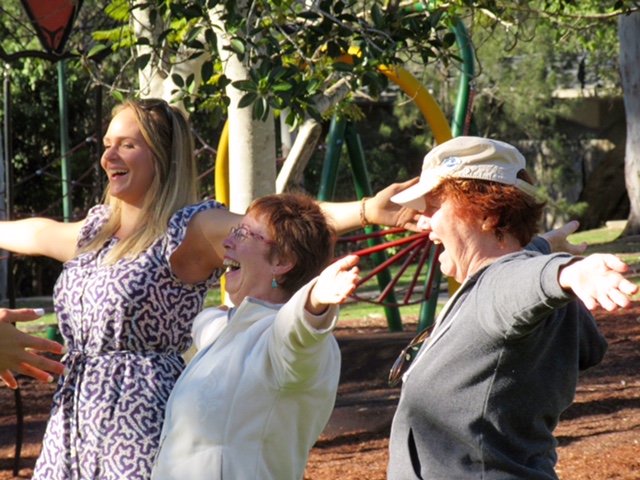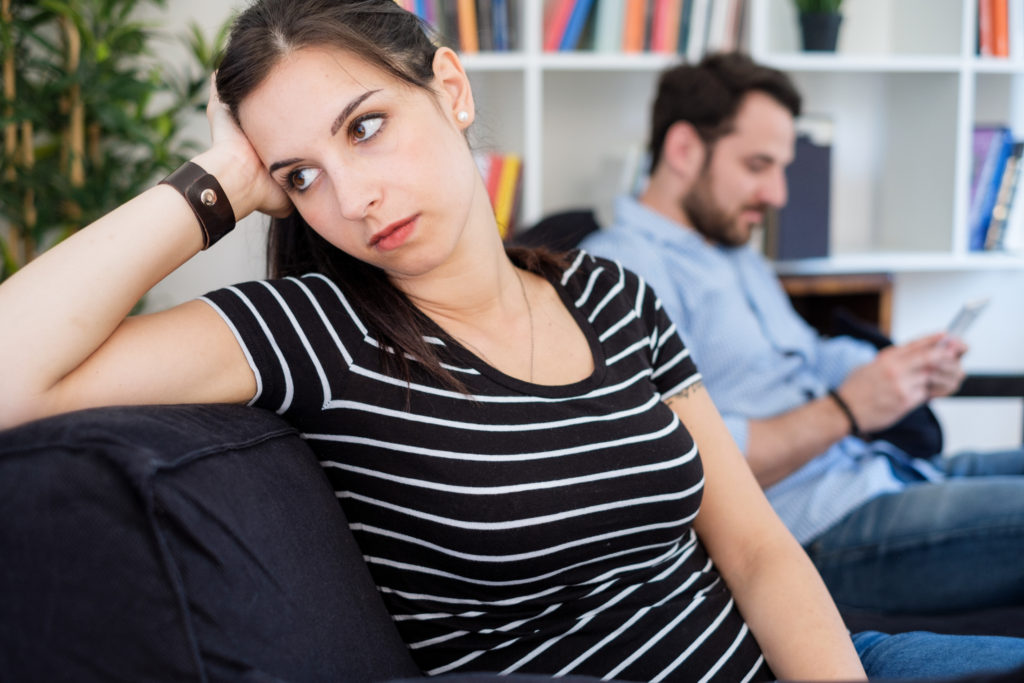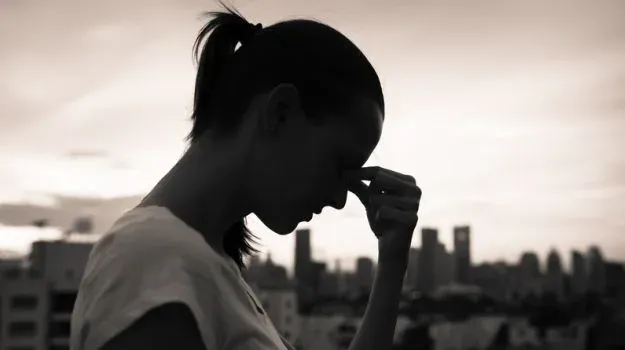
Depression and exercise: could laughter yoga help?
“If exercise was a pill, it’d fly off the shelves.”
They’re the words of a Queensland university psychology researcher whose study of the impact exercise has for people suffering depression has just been published in the internationally renowned BMJ.
“We found exercise should be considered alongside traditional interventions as a core treatment for depression,” Dr Michael Noetel shared with ABC Brisbane radio listeners last week.
This has brought about a tremendous Very Good Very Good Yay from everyone working with others to lift physical, mental and social wellbeing.
While it’s unclear whether Laughter Yoga was even included in the review of 200+ studies, we do know that incorporating positive physical activities makes a difference—and mirthful Laughter Yoga is most certainly that.
Body-mind connection
There’s a complex interplay between emotion and motion in depression.
When you’re feeling down, you might move more slowly, slump your shoulders, or have less energy for activities.
Emotional distress can often manifest physically. In the case of depression, this might mean a lack of motivation to engage in physical activities or exercise.
Depression can create a kind of feedback loop, a vicious cycle where emotions and physical actions reinforce each other.
Neurotransmitters and hormones
Physical activity has long been known to release neurotransmitters like endorphins which can improve mood.
In depression, there may be an imbalance of these chemicals in the brain. Lack of physical activity can contribute to this imbalance.
No ‘one size fits all’
I appreciate that Dr Noetel kept an open mind on which exercise works best.
There’s a therapeutic approach called behavioural activation which encourages individuals to engage in activities that bring a sense of accomplishment and joy.
I, for example (as one who was diagnosed with major depression in my 20s), found a combination of strength training and swimming worked for me. I didn’t ‘discover’ the practice of Laughter Yoga until my 40s. A combination of strength training, Laughter Yoga, swimming and cycling remain critical parts of my self-care to this day.
In his research review, Dr Noetel noted that strength training was found to be particularly helpful for younger women whereas older men received the most benefit from yoga.
“Different types of exercise work in different ways – some are social and get us outside while others help us become more confident or get more space from our thoughts. But no matter how often people exercised, whether they had other health issues or how severe their depression was, in all scenarios, exercise had a meaningful impact on their depression,” Dr Noetel revealed.
What is Laughter Yoga?
Laughter Yoga is a unique exercise routine combining laughter, initiated as a physical exercise, and yoga breaths, usually carried out in-person in a group. It was devised by a physician in India in the 1990s.
One of the many advantages of Laughter Yoga is that you do not need to be ‘in the mood’ to laugh.
You can feel blue or down. You may be tired. You may have depression. You can be full of worries. You may be shy. Life may suck… None of that has anything to do with stopping you from doing Laughter Yoga – if you are willing to give it a go.
Laughter Yoga is also adaptable and accessible for all abilities and ages.
It’s seriously playful fun that doesn’t feel like exercise.
Laughter clubs in community
The original model for Laughter Yoga’s delivery was free or very low cost neighbourhood ‘laughter clubs’ run by trained volunteers called laughter leaders.
There are in-person laughter clubs all over the world. Since COVID lockdowns, online clubs have emerged too.
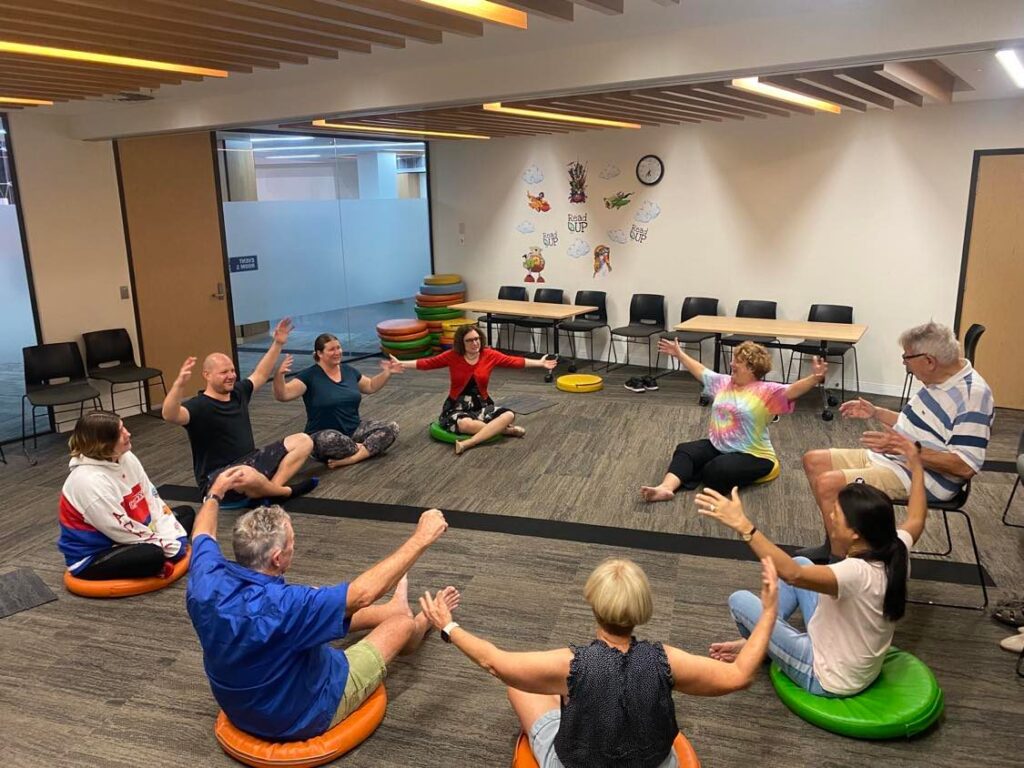
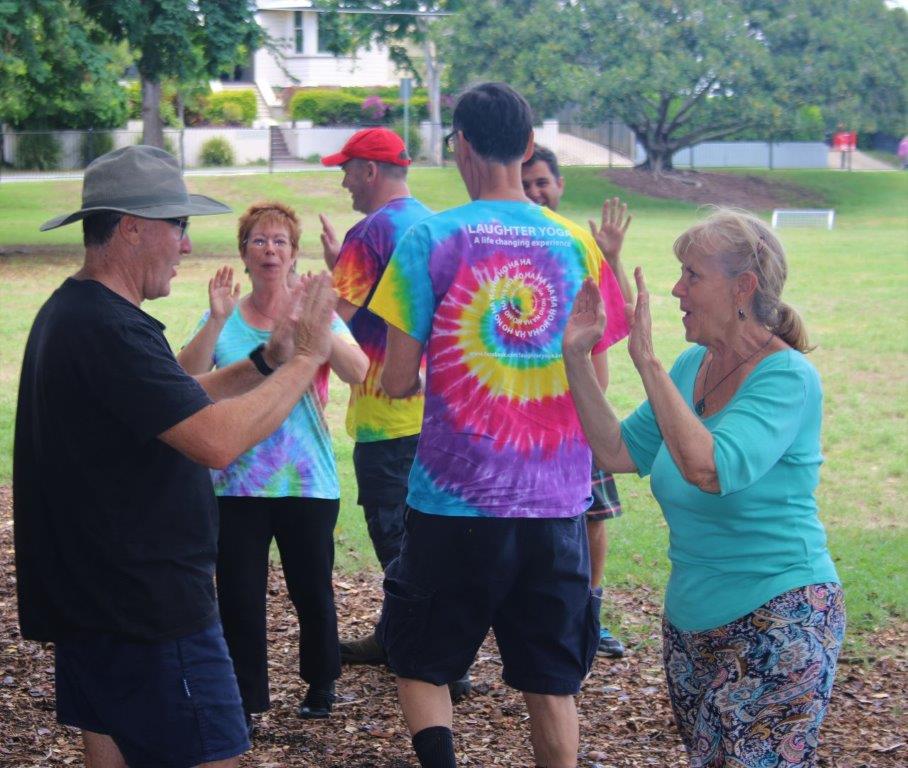

These laughter clubs provide a sense of physical, mental and social wellbeing for participants.
This map shows locations of laughter clubs around Australia. Here’s a list of online clubs too.
As the founder of Laughter Yoga, Dr Madan Kataria, is known to have said:
“There was not much laughter in medicine, but there is much medicine in laughter”.
Author HeatherJoy Campbell is a Queensland-based global ambassador for Laughter Yoga International. A certified laughter yoga teacher/trainer, she’s a former medical writer and has the lived experience of depression and anxiety. She runs laughter clubs in her community of Moreton Bay region as a giveback.
